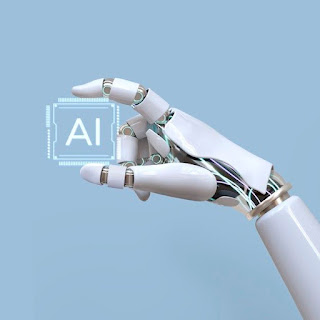How AI transforming software solutions in 2025
AI-driven changes will redesign software solutions throughout 2025 by advancing the industry.
The technological revolution through Artificial Intelligence (AI) continues to transform software development into its current revolutionary state which will reach peak impact in 2025. AI advances development practices and improves user interfaces at a groundbreaking rate which constitutes an unprecedented rate of innovation. AI utilities explain their transformative effect on the software sector during this present year.
1. AI-Powered Software Development
Software development processes receive fundamental transformation through AI because of its integration in the software creation process.
AI-assisted coding tools under the names GitHub Copilot, Tab nine and Amazon Code Whisperer offer developers smart suggestions to produce better and faster code which also includes auto-completion features.
Computing systems powered by AI possess the capability to locate bugs along with recommending solutions while performing automatic testing that cuts down the period required to develop quality software.
AI enables users to avoid programming expertise because of low-code/no-code application development platforms. Non-developers gain the ability to construct powerful applications by using user-friendly drag-and-drop interfaces on AI-powered platforms.
2. Intelligent Automation
The level of automation gets a complete overhaul through AI advances.
The automated release process of applications alongside their monitoring and capacity management through AI technology generates more efficient operations while lowering system failures.
Operation efficiency grows stronger through AI-empowered chatbots which assist with computer maintenance operations and provide immediate support for routine tasks.
3. Enhanced Cybersecurity
AI assumes a vital protective function toward software systems during this time when cyber threats are rising.
The real-time examination and sophisticated analysis of extensive data through AI technology leads to the discovery of dangerous anomalies which can be stopped before their expansion.
4. AI-Enhanced User Experience
The way users relate with software systems gets redefined through AI technologies.
AI utilizes personalized software interfaces to adapt user interfaces according to what users behave and choose so they feel greater engagement.
Users appreciate voice assistant interfaces owing to their easy natural language processing capabilities with NLP and their chatbot functionality.
5. Predictive Analytics & Decision-Making
Advanced technology grants businesses better insights through its power.
Business intelligence powered by artificial intelligence enables tools to discover profound business insights that enable companies to base their decisions on data.
Software and hardware systems under predictive maintenance protection enable AI to detect failures that have yet to happen thus preventing operational interruptions.
6. AI in Cloud Computing
The use of AI sets up cloud environments to run better while making them more economical across all parameters:
.Executor capabilities embedded in AI-controlled cloud systems allow automated detection of problems followed by autonomous problem-solving that enhances system reliability.
Intelligent algorithms deployed to manage data storage together with processing lead to ideal resource management.
7. AI for Software Personalization
Modern software solutions base their operations on personalization as their fundamental principle.
Artificial Intelligence learning systems create software programs which adapt automatically based on user behavior thus increasing the user experience and satisfaction rate.
8. AI in Software Maintenance
Software maintenance currently presents itself as an effortless task.
AI-powered self-update capabilities permit software adjustment routines that minimize user involvement while auto-patching and software optimization functions take place.
Inherit code can be assessed by AI tools which generate recommendations for enhanced performance accompanied by improved security features.
Conclusion
AI surpasses its former position as a supporting tool when it transforms software operations at the core of development in 2025. AI develops software tools through deployment as well as user interfaces while enhancing their security to create solutions that perform at higher speeds with better efficiency and intelligence. The software industry will experience increased power because AI technology expands rapidly between today and 2025.



Comments
Post a Comment